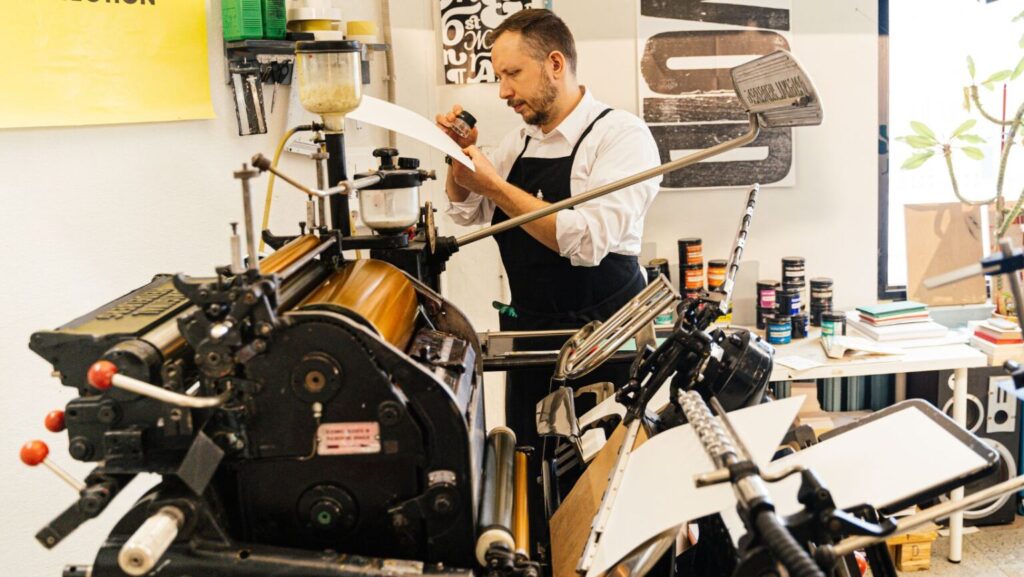In a world where every coffee shop boasts a “disruptive” startup vibe, it’s easy to feel overwhelmed by the sheer number of new ventures popping up. But fear not! This article dives into some of the most innovative and quirky startup examples that are not just surviving but thriving. From tech wizards to eco-warriors, these companies are shaking things up in ways that’ll make you chuckle and think, “Why didn’t I come up with that?”
Startup Examples
Several startups are making significant strides in their respective industries with innovative approaches.
Airbnb transformed the hospitality sector by allowing homeowners to rent out their spaces. This model created a sense of community while providing travelers unique accommodation options.
Stripe streamlined online payments for businesses. By simplifying transactions, it enabled small and large companies to accept payments effortlessly.
Beyond Meat is leading the plant-based food movement. Its products provide meat alternatives that appeal to health-conscious consumers and offer environmental benefits.
Robinhood revolutionized stock trading with its commission-free platform. It democratized investing, making markets accessible to everyday individuals.
Zoom emerged as a key player in video communication. Its user-friendly interface and reliable service gained popularity, especially during the rise of remote work.
Peloton combined fitness with technology through its connected equipment. This innovative approach to exercising created a loyal community focused on health and wellness.
SpaceX is redefining the aerospace industry with its ambitious goals for space travel. Its achievements, including reusable rockets, contribute to reducing costs and increasing the accessibility of space.
Trello simplifies project management with its visual board system. Teams can organize tasks efficiently, enhancing collaboration and productivity.
Figma disrupted the design industry by providing a collaborative, web-based interface. Designers appreciate its real-time editing capabilities that facilitate teamwork.
Duolingo revolutionized language learning with a gamified approach. Users engage with bite-sized lessons that blend fun with education, attracting millions worldwide.
These examples illustrate how startups can innovate across various sectors, driving trends and offering solutions that resonate with consumers.
Tech Startup Examples

Innovative tech startups continue to lead the way in transforming industries and consumer experiences. These organizations exemplify forward-thinking solutions and groundbreaking technologies.
Silicon Valley Innovators
Silicon Valley remains a global hub for tech startups. Companies like Palantir Technologies focus on big data analytics, helping organizations use vast amounts of information effectively. Another standout, NVIDIA, revolutionizes graphics processing units, powering gaming, artificial intelligence, and deep learning applications. Lyft competes in the ride-sharing market, providing a user-friendly platform for transportation. In the realm of cybersecurity, CrowdStrike protects businesses from cyber threats with its cloud-based solutions. These companies demonstrate how Silicon Valley sustains a robust environment for innovation and entrepreneurship.
Disruptive Technologies
Disruptive technologies redefine traditional industries. Companies like DocuSign streamline contract management through electronic signatures, eliminating the need for paper documents. Meanwhile, 23andMe democratizes genetic testing, enabling individuals to access their DNA information easily. Additionally, Salesforce transforms customer relationship management, allowing businesses to automate marketing and sales processes. Peloton leads the fitness tech sector, integrating high-quality workouts with digital connectivity. These examples highlight how startups leverage disruptive technologies to create new markets and reshape existing ones.
Social Impact Startup Examples
Social impact startups focus on creating positive change while driving profit. These companies blend their missions with business strategies to address social issues effectively.
Non-Profit Innovations
Non-profit startups like Charity: Water leverage technology to improve access to clean water in developing countries. A new initiative connects donors directly to specific projects, fostering transparency. Another example, Kiva, provides microloans to entrepreneurs in low-income areas, promoting economic development. By offering loans with low interest rates, Kiva empowers individuals to build sustainable businesses. Similarly, Teach For America recruits recent graduates to teach in under-resourced schools, aiming for educational equity. These innovations demonstrate how non-profits can adopt business principles to enhance their impact.
Sustainable Businesses
Sustainable startups such as Plaine Products focus on eliminating single-use plastic by offering refillable personal care products. A commitment to sustainability underpins their business model. Another example, Rothy’s, produces stylish shoes from recycled plastic bottles, appealing to eco-conscious consumers. They marry fashion with environmental responsibility, gaining popularity for their innovative designs. Furthermore, Bombas donates a pair of socks for every pair purchased, addressing homelessness while growing their brand. These sustainable businesses showcase the potential for profitability alongside environmental accountability.
Unique Startup Examples
This section highlights unique startups exemplifying innovation and creativity in their business approaches and products.
Creative Business Models
Airbnb changed the hospitality landscape by transforming underutilized space into an income-generating asset. Companies like Uber excel with a ridesharing model, allowing users to request transportation with a simple app. Warby Parker pioneered the direct-to-consumer eyewear market, offering stylish glasses at affordable prices while promoting a buy-one-give-one program. Subscription services such as Dollar Shave Club disrupt traditional retail by delivering grooming products directly to consumers’ doors. Another example includes Toms, which blends fashion with social cause through their one-for-one initiative, making a positive social impact with each sale. These inventive models demonstrate how startups are redefining consumer experiences while driving profitability.
Unconventional Products
Beyond Meat leads the way in plant-based food alternatives, catering to health-conscious and environmentally aware consumers. Rothy’s specializes in stylish shoes made from recycled plastic bottles, offering sustainability without sacrificing design. Another intriguing product is the smart home device Nest, designed to learn user preferences for energy efficiency. On the tech front, Casper revolutionized sleep with its award-winning mattress, delivered straight to customers’ homes. Meanwhile, the startup Hims focuses on men’s health, providing discreet access to wellness products through an online platform. These unconventional products illustrate how startups are pushing boundaries while meeting consumer needs creatively.
Conclusion
The diverse range of startups highlighted showcases the power of innovation and creativity in today’s business landscape. Each company represents a unique approach to solving problems and meeting consumer needs. Whether through technology, social impact, or sustainability, these startups are not just changing their respective industries but also inspiring others to think outside the box.
As they continue to push boundaries and redefine norms, the entrepreneurial spirit remains alive and well. The future holds endless possibilities for those willing to embrace change and take risks in pursuit of their vision.



